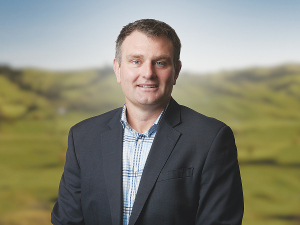Applications for the 2025 intake of the Rabobank New Zealand Graduate Programme are now open.
The 18 month-long programme offers university graduates with an interest in agri banking the opportunity to begin their careers, says Rabobank.
Six graduates from around the country will be selected for the programme, where they will gain experience and be given career development support, within the bank’s country banking division.
Announcing the opening of applications, Rabobank New Zealand general manager for country banking Bruce Weir says the bank officially launched its Graduate Programme in 2021 and more than 35 graduates had now been employed as part of the programme.
“As a food and agri banking specialist, Rabobank is well aware of the need to continue to attract energetic and talented young people into roles across the agri sector,” he says.
“Alongside our client council network, we have a really strong focus on creating more pathways for young people within the industry, and the Graduate Programme is one of the key initiatives we undertake to support this objective,” he says.
Applications for the programme close on Wednesday 19 June 2024 and the new intake of graduates will begin the programme early next year.
According to Weir, up to 15 graduates will be shortlisted for the six positions on offer and, for the first time, all short-listed candidates will be invited to attend a one-day in-person assessment session in Rabobank’s Wellington office.
“The day will provide graduates with a unique opportunity to showcase their energy, skills and capabilities, meet staff from several teams across the bank, and to get a feel for what it’s like working for a specialist agri bank,” he says.
“It will also allow us to evaluate graduate competencies and help ensure we’re selecting the graduates who are the best cultural fit for the bank.”
One of the 2023 intake of graduates, Max Robertson, says the programme had provided him with the opportunity to live and work in different parts of the country and gain experience across a range of agricultural industries.
“My first rotation was in the New Plymouth office, and going out into the regions and to somewhere I hadn’t been before was a bit daunting at first,” he said.
“But it provided me with a real foothold to start successfully within the bank and ensured I was put outside my comfort zone.”



















